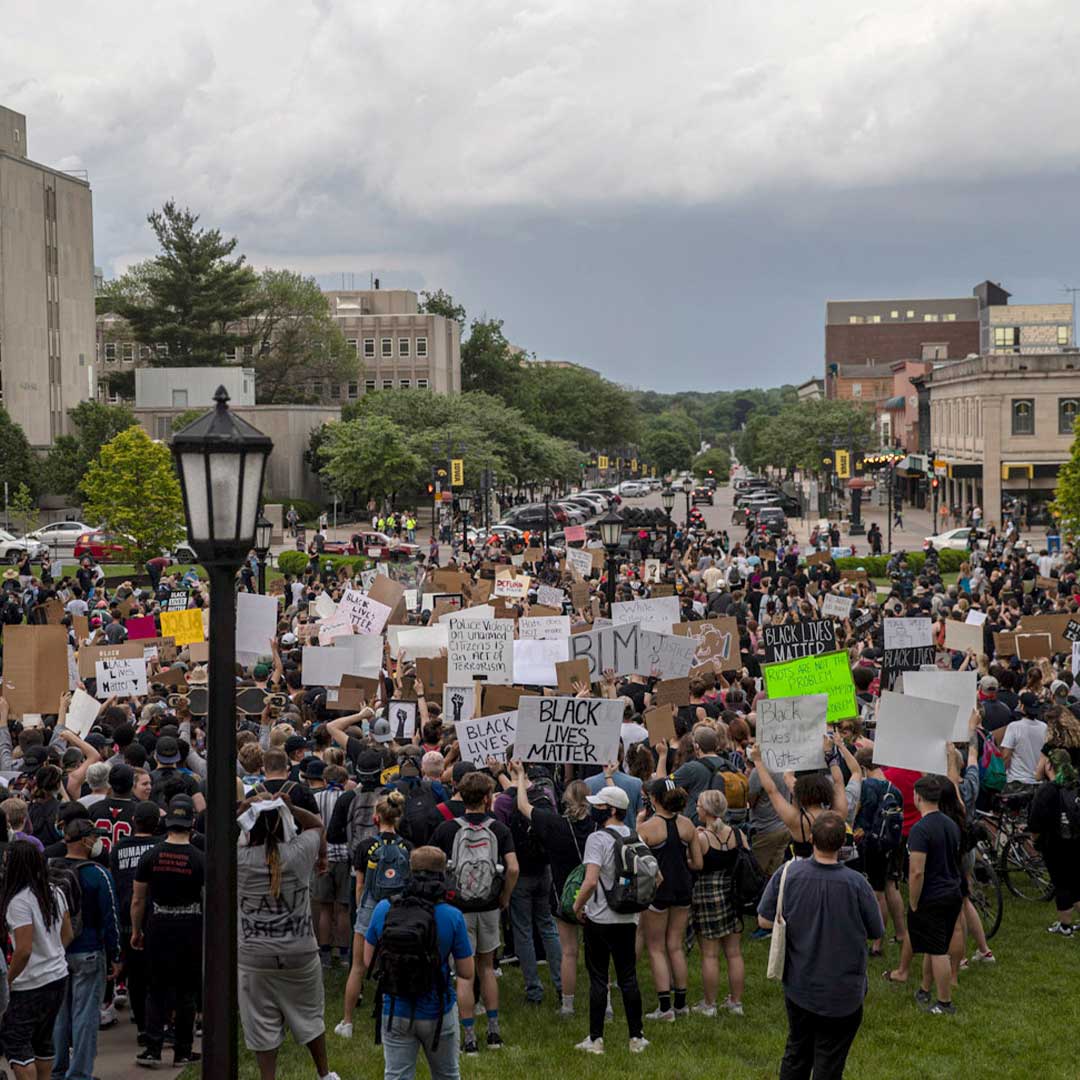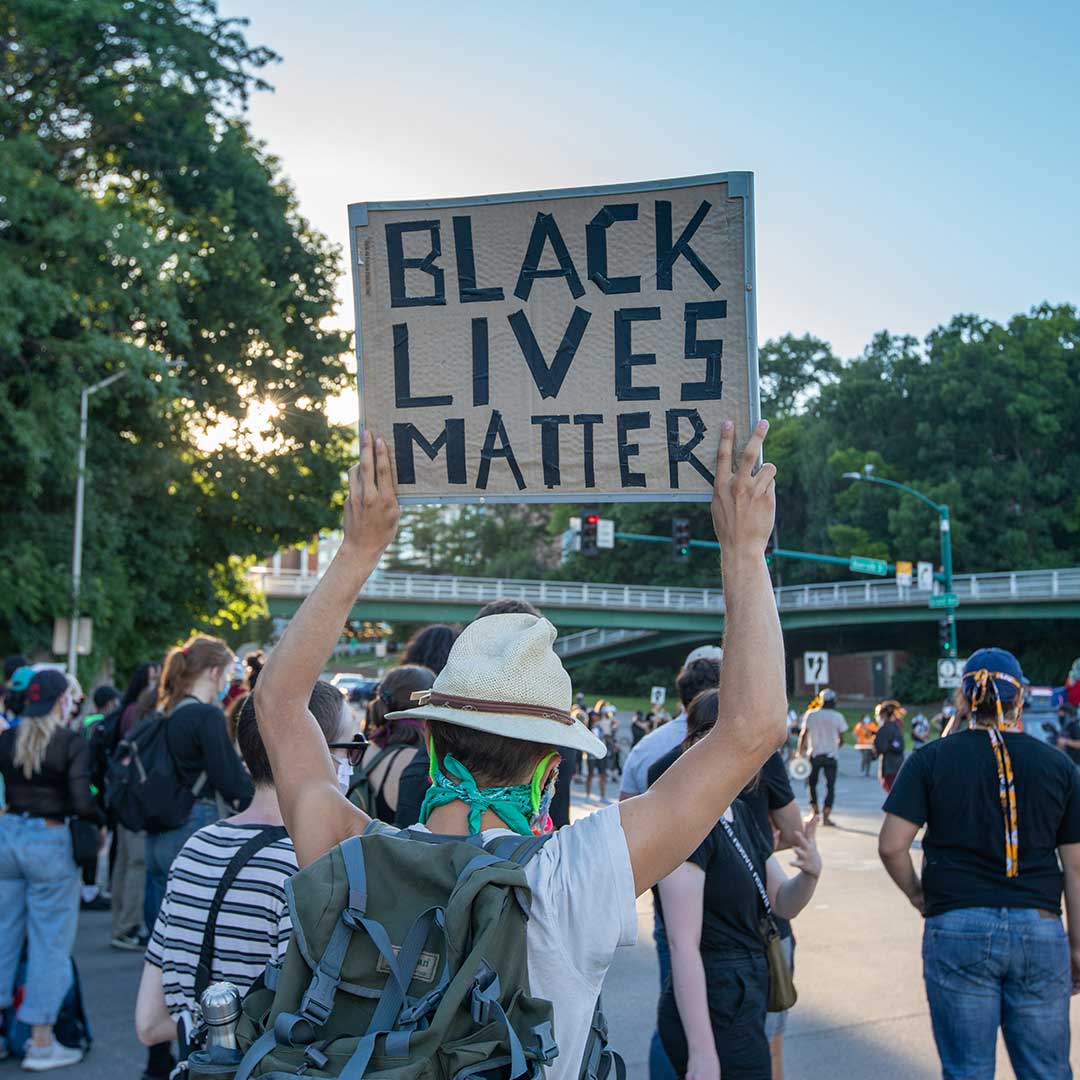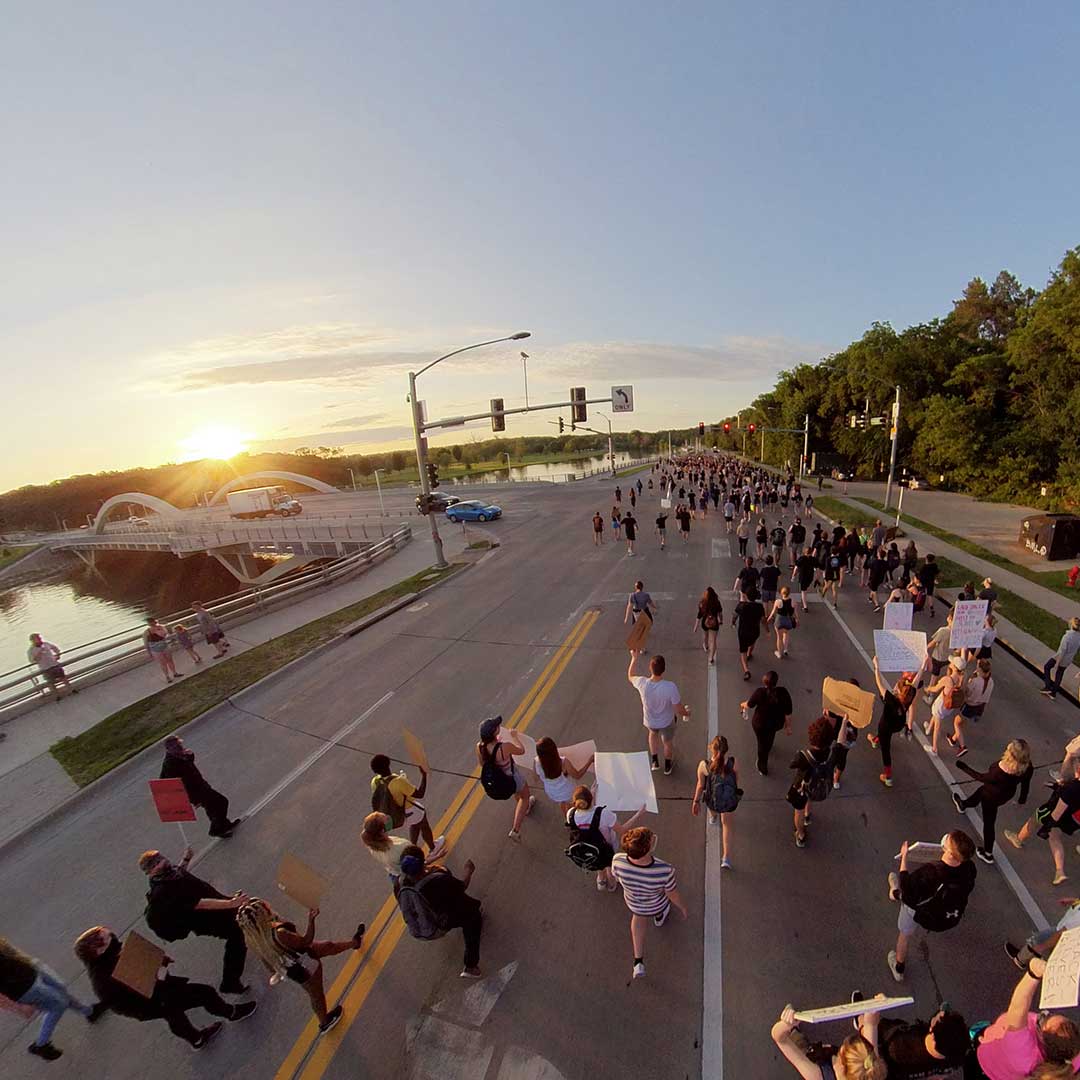IOWA Magazine | 09-11-2020
Iowa Alumnus Leads Dialogue About Race and Privilege at Workshops Nationwide
By Josh O'Leary
4 minute read
A Q&A with Eddie Moore Jr., founder and director of the Privilege Institute and the National White Privilege Conference
Eddie Moore Jr. (04PhD) is ready for the difficult conversations ahead as our nation grapples with its long history of racism and injustice. In fact, he's spent his career leading dialogues about race and privilege in workshops for schools, businesses, universities, and community organizations.
Moore is founder and director of the nonprofit Privilege Institute and the National White Privilege Conference, an annual event focused on diversity, power, privilege, and leadership that draws more than 1,500 people. He's also co-founder of the online journal Understanding and Dismantling Privilege and co-editor of several books on race and education.
"It feels like we're in a real moment of opportunity to explore some of the most difficult topics related to our nation's history," says Moore, who earned a PhD in educational policy and leadership studies at Iowa. "And that is this narrow, horrific, violent framework of white supremacy and white male cultural dominance. If we're going to build the kind of society that we often talk about, then we've got to really understand that unhealthy start that we spent hundreds of years participating in."
Moore recently presented webinars on white privilege for the UI Center for Human Rights and the UI Center for Advancement's Chat From the Old Cap series. Here are some highlights from his Q&As, edited for length and clarity.
How do you define white privilege?
You can't say white privilege if you don't understand white supremacy. If you think of it as a metaphor, white supremacy is the cloud above, and white privilege is one of the things that sprinkles from it. White privilege is a benefit, a perk, simply because of your white skin.
What is the relationship between white privilege and implicit bias?
Bias used to be something people didn't think a lot about. People were walking around saying, "I'm color-blind. When I look at you, I don't see color." What brain research on bias has helped us understand is we all have it. And implicit bias is really that build-up of bias that plays out in our behavior. It's almost automatic that when you look at me, you see I'm tall, you see I'm a dude, you see I'm Black, you may associate me with being an athlete. Now even though I have that in my background, that's not who I am to the core. But the implicit bias plays out in that way.
Now where that intersects with white privilege is because the structural designs of organizations present white and male as better, as supreme, as richer, as smarter, as more employed, people get that message over and over again. Therefore, when you see a white dude, you don't associate that with danger. It's often the oppositeóboss, banker, lawyer.
If someone is a white poor person, as opposed to a white billionaire, how can that poor person have white privilege?
This is where even more of the complexity plays out. Yes, Black professionals can have more privilege than a homeless white person who is not receiving any access to health care or housing. In that case there may be some class privilege differences. We know that here in America, the more resources you have, the more income you have, the more access you have.
Talking about and understanding white privilege is not about demeaning white people or making white people feel bad. I'm trying to get people to understand that this nation was designed in a narrow way around white supremacy. And for hundreds of years, it put forward policies and organizations and corporations operating in this narrow framework. Now today, as we try to form this more perfect union and create this multicultural, inclusive society, you can't make a society that's inclusive if you don't understand the narrow way in which it was designed.
What action can we take against racism?
If there's anything you can do to get this started, it's at least to say something, because the best friend that hate has is silence. My biggest frustration is good people with good hearts who say nothing when they know it's wrong.
If recognizing white privilege is the first step, what is the next step?
If you have access to privilege, the key is not feeling bad about that. The question is, what are you doing with that? What are the good things you can do? For me, I'm trying to use the high level of privilege I possess (in gender and ability) to do good things in the places that I have power and access.
Join our email list
Get the latest news and information for alumni, fans, and friends of the University of Iowa.
Join our email list
Get the latest news and information for alumni, fans, and friends of the University of Iowa.



